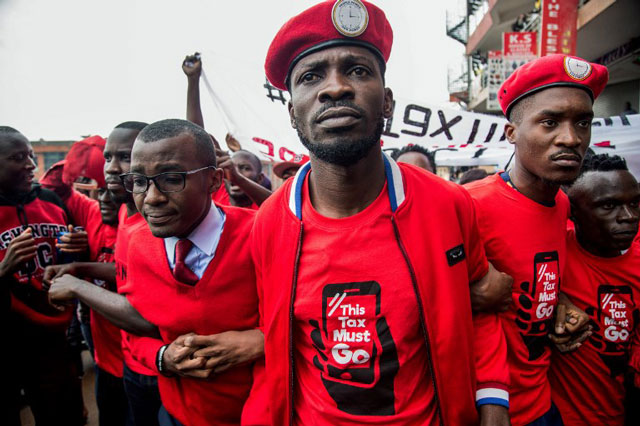
Social unrest fears
Critics say the government’s slew of legislations which it claims would regulate, organise the targeted sectors, might lead to social unrest, income inequality and increase in outright crime.
The fears are not unfounded. Political experts often see a link between unwanted government laws, policies, and regulations and civil protests. They say the connection is stronger in cases where leaders that overstay in power use them to suffocate the population.
They say that the people that feel unfairly treated with these laws can easily be mobilised to behave in a way that could fail a regime.
Richard Ssewakiryanga, the executive director of the NGO Forum – an umbrella organisation of civil society organisations told The Independent on July 26 that the government should be finding new ways of attracting people to do business not merely coming up with more legislation.
“These proposed laws are simply going to create tension in various sectors, leading to reduced productivity and business expansion,” he said, “We have hundreds of laws here, most of them not implemented.”
Ssewakiryanga said the government needs to only come up with incentives that will foster productivity and encourage streamlining various sectors voluntarily without necessarily using laws.
Some commentators have said the slew of regulations reflects the frantic moves of a failing government.
Hussein Kyanjo, the former Member of Parliament for Makindye East constituency, told The Independent in an interview that there is “political anger” among Museveni’s critics. Coupled with the many problems people are facing, the anger might plunge the country into chaos.
Kyanjo says that Uganda’s situation is not different from the recent one in the neighboring Sudan and Zimbabwe that led to the overthrow of President Omar Bashir who ruled from 1989 – 2019 and Robert Mugabe [who ruled] from 1987 – 2017.
“They are small things that spark protests that result into collapse of regimes,” Kyanjo said.
“What happened in the Arab countries may not necessarily happen here but I am sure something will happen here soon and it will not be good,” Kyanjo told The Independent on July 27.
He listed the current problems that the country is facing as high levels of unemployment, poverty, corruption, underperforming of key government development projects, failing private sector companies, growing urban crime and murder cases, election rigging, failing government institutions, tribal conflicts, and torturing of opposition politicians which he said are clear signs of a failing regime.
Good or bad timing?
The latest `State of Uganda Population Report 2018’ released by the National Population Council in November 2018 also shows that Uganda has about 19 million people of working age out of a total population of 41 million people. The report says that the country has one of the highest unemployment rates standing at 9.2% and poverty levels standing at 21.7%.
This is bad news because the most affected persons are the youth who can easily become a source of social unrest.
Kyanjo says currently Parliament has enacted laws that are not bringing anything new to benefit Ugandans but only help one person – President Museveni to keep in power.
“What we are seeing now is extreme fatigue by the government,” Kyanjo said when asked to point at the good things the current regime is doing.
He pointed at the Public Order Management Act, the Computer Misuse Act, the removal of article 102 (b) in the constitution.
To make the situation even worse, Kyanjo said that there are divisions within the ruling party evidenced by increasing number of Members of Parliament joining opposition pressure groups like People Power headed by Kyadondo East Member of Parliament Robert Kyagulanyi (Bobi Wine).
****
 The Independent Uganda: You get the Truth we Pay the Price
The Independent Uganda: You get the Truth we Pay the Price


